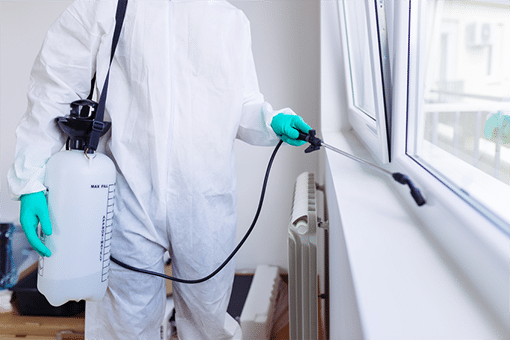Comprehensive Pest Control Services: Keep Your Building Pest-Free!
Specialist Insect Control Techniques for Long-Term Outcomes
In the realm of bug control, achieving sustained efficacy and lasting results requires a thorough method that goes beyond simple extermination. Professional insect control techniques envelop a thorough method that begins with a complete assessment and analysis, followed by specific pest identification to recognize their behavior patterns. The execution of Integrated Bug Administration (IPM) concepts, combined with eco-conscious therapies, forms the keystone of sustainable parasite obliteration. However, the true test depends on the ongoing surveillance and maintenance of the dealt with locations, making sure a pest-free environment for the foreseeable future. By delving right into the ins and outs of these strategies, a much deeper understanding of expert pest control methods for withstanding results arises.
Evaluation and Assessment
Upon entering a building for parasite control solutions, the first step is a thorough examination and analysis to identify the level of the infestation and establish one of the most effective treatment strategy. Professional parasite control professionals are educated to carefully analyze the properties, seeking indications of pest task such as droppings, gnaw marks, nests, or any kind of architectural damages. They will certainly also assess the problems that may be drawing in parasites, such as food resources, water leakages, or access factors.

Insect Recognition and Behavior

In addition, comprehending the behavior of the recognized insect is essential to carrying out efficient control actions. Knowing where bugs nest, what they feed on, and their task patterns can assist pest control experts design techniques to eliminate them successfully.
Integrated Bug Monitoring (IPM)
Integrated Pest Management (IPM) methods integrate multiple strategies to control and prevent insect infestations in a sustainable and eco friendly manner. bed bug exterminator. By integrating techniques such as biological control, habitat manipulation, modification of social techniques, and the use of immune ranges, IPM intends to lessen the usage of chemical pesticides
Among the key concepts of IPM is the focus on avoidance. This proactive technique involves monitoring insect populations on a regular basis to spot any potential problems prior to they escalate. By recognizing insect troubles early, pest control measures can be implemented swiftly and successfully.
Moreover, IPM promotes the usage of non-toxic insect control methods whenever possible. This can consist of employing all-natural predators of the parasites, introducing useful insects, or making use of scents to disrupt breeding patterns. By minimizing dependence on chemical pesticides, IPM not only shields the setting yet also assists maintain a balance in the ecosystem.
Environmentally-Friendly Therapies
Implementing eco-conscious strategies in pest control procedures can successfully resolve problems while focusing on environmental sustainability. Environmentally-friendly therapies concentrate on lessening the impact of insect control methods on ecosystems, non-target organisms, and human health. These techniques frequently involve making use of natural predators, such as ladybugs or nematodes, to regulate pest populaces, reducing the demand for chemical treatments. Furthermore, techniques like habitat adjustment, such as adjusting wetness degrees or get redirected here getting rid of food sources, can assist deter pests without using damaging compounds.
An additional secret aspect of environmentally-friendly therapies is making use of organic and eco-friendly products that break down rapidly without leaving damaging deposits in the environment. Botanical insecticides acquired from plants like chrysanthemums or neem offer reliable pest control while posturing marginal risk to non-target varieties. Using approaches like heat treatments or pheromone traps can target details bugs with precision, minimizing the general environmental impact of pest control techniques.
Recurring Surveillance and Upkeep
Routine inspections by trained experts are needed to recognize any indications of parasite task, evaluate learn the facts here now the efficiency of previous treatments, and make changes to the bug control plan as required. By keeping track of insect populations over time, parasite control experts can track fads, prepare for prospective problems, and carry out preventative procedures to minimize the danger of future invasions.
In enhancement to surveillance, upkeep practices are vital for lasting bug control success. This consists of implementing correct cleanliness steps to eliminate possible food and water sources for insects, sealing entrance points to stop parasites from going into the premises, and addressing any kind of architectural concerns that could facilitate insect infestations (bed bug exterminator). By including recurring tracking and upkeep into an incorporated bug administration strategy, companies can guarantee a pest-free environment and safeguard their residential or commercial property versus expensive damages and wellness dangers
Verdict
To conclude, making use of expert parasite control strategies such as detailed assessment and evaluation, precise parasite recognition and understanding of their actions, integrated insect management strategies, you can look here environmentally-friendly therapies, and ongoing tracking and upkeep are important for achieving long-term results in bug control. By executing these techniques, people can effectively take care of parasite invasions and maintain a pest-free atmosphere in a sustainable manner.